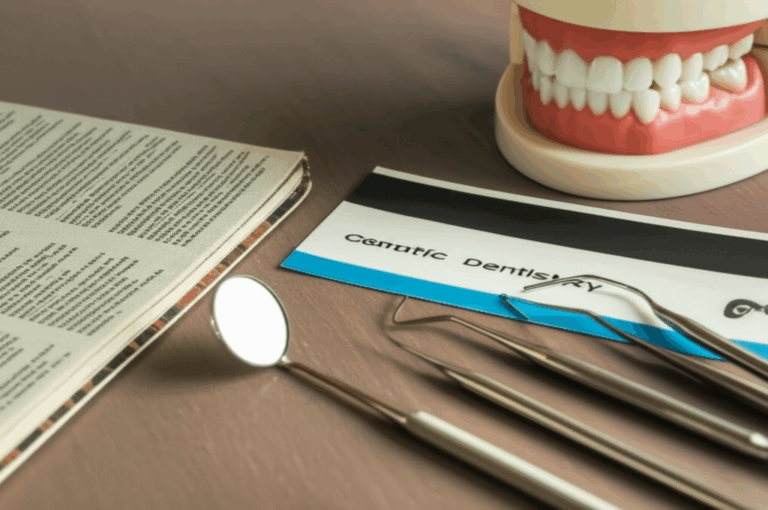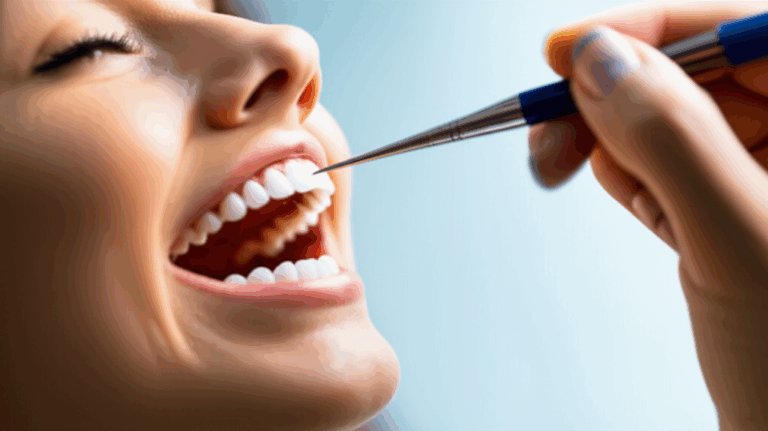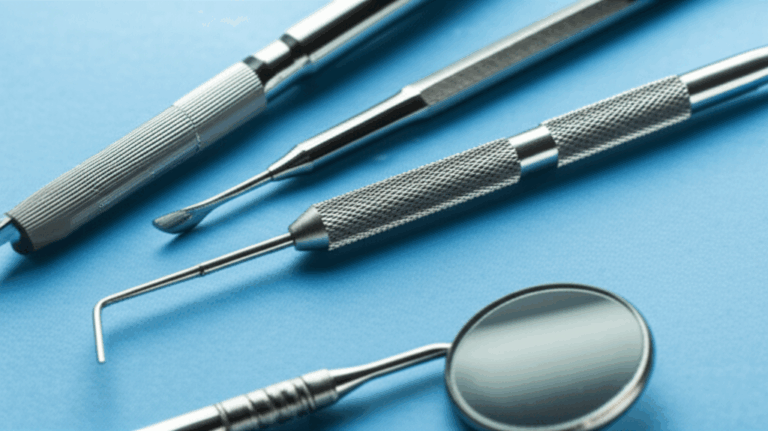
Finding Your Calm: My Step-by-Step Guide to Choosing a Dentist for Nervous Patients
Table of Contents
- Empathy and Communication
- Patience and Flexibility
- Sedation and Comfort Options
- Creating a Calming Environment
- Modern Techniques and Technology
Introduction: Facing Dental Anxiety with Hope
Let me start by saying this — if just thinking about sitting in a dentist’s chair makes your stomach feel funny, you really aren’t the only one. I know what it’s like to feel scared, sweaty, and have your heart race when it’s time to visit the dentist. Being nervous can make it tough to take care of your teeth. But don’t give up hope. I learned over the years that there really are dentists out there who understand people like us — the ones who are nervous. They are gentle, talk things out, and care more about making you feel okay than just getting the job done. It’s not about “toughing it out” or just dealing with it. It’s about working together and actually looking forward to taking care of your teeth.
In this guide, I’ll walk you through what I learned going from being really scared of the dentist to actually feeling good about my visits. There’s no magic answer, but one step at a time, you can take charge and get the help you need.
Understanding Dental Anxiety: What It Looks and Feels Like
My fear of the dentist didn’t come from nowhere. The first time I really noticed it, I was holding onto the chair so tight my hands hurt. People call it dental anxiety or even dental phobia. Whatever you call it, it’s real, and it happens to a lot of us.
Dental anxiety is just being really nervous before or during the dentist. For me, sometimes it happened the day before. For some people, it’s so bad they feel like they can’t even go. Some things that really make the fear worse are:
- Being scared it will hurt — maybe because of something that happened before, or a story you heard.
- Being scared of needles or the loud drill.
- Worrying that you won’t be in control. What if you need to say something, but your mouth is busy?
- Feeling embarrassed about the way your teeth look.
All of this can make you just want to skip the dentist or put it off for years. But skipping the dentist just makes things worse for your teeth — and your confidence — later on.
What Makes an Anxiety-Friendly Dentist?
After a while, I figured out what really made the dentist easier for me. It wasn’t just what was being done to my teeth — it was the person doing it, and their team. Here’s what I found matters most:
Empathy and Communication
This is the most important thing. The first time I found a dentist who really listened to me and understood why I was scared, everything was different. A dentist who helps nervous people won’t ignore your fears or try to rush. They’ll ask about your worries, answer your questions, and explain things so you get it. Good talking helps you trust them. In fact, most nervous patients (like me!) just want someone who really listens, sometimes even more than perfect skill.
Patience and Flexibility
Once, I had to sit up and take a break during a cleaning. My dentist just smiled and said, “Take your time.” That meant so much to me.
Kind dentists know sometimes you need:
- More time for visits
- The choice to take a break
- Hand signs or ways to stop when you need
These little things help you feel safe and in charge.
Sedation and Comfort Options
Not all dentists offer the same comfort choices. When I was looking, I found offices that had different ways to help you relax, like:
- Laughing gas (nitrous oxide): It helps calm your nerves without making you sleepy. I still stayed awake but felt way more relaxed.
- A calming pill: My dentist prescribed one before an appointment, and my fear went way down. I still remembered what happened but wasn’t as stressed.
- IV sedation: For big fears or big dental work, you can get medicine through an IV that really helps you relax. This was a lifesaver for some of my friends.
- General anesthesia: Rare, but sometimes needed for really hard cases.
- Numbing gels and shots: Even simple numbing can help you get past needle fear.
Ask about these things — a dentist who’s happy to talk about them is probably the right choice.
Creating a Calming Environment
From the moment you walk in, the way the office feels makes a big difference. The best places for anxious people have:
- A quiet, peaceful waiting area
- Private rooms or dividers
- Distractions: TVs on the ceiling, music, or even goggles to watch videos
- Weighted blankets, stress balls, and good smells to help you feel better
Some offices even care about lighting and smells — and those things can really help your nerves.
Modern Techniques and Technology
New tools in the dentist’s office make things faster and easier. Honestly, the first time I had a digital scan instead of the goopy trays, or got a filling with a laser instead of a drill, I couldn’t believe it. Dentists who care about nervous people keep their tools up-to-date so everything is less scary.
How I Found the Right Dentist: My Step-by-Step Search Strategy
If you’re like me, “finding a good dentist” sounds like a lot of work. But I found that breaking it down into steps made it way easier.
How to Use Online Resources
I started by typing things like “dentist for scared patients near me”, “sedation dentistry [my town]”, or “kind dentist reviews.” When reading reviews, I looked for words like “caring,” “patient,” and “good for nervous people.” Don’t just use Google — websites like Zocdoc, Yelp, or your state’s dental group are super helpful.
There are also lists, like the American Dental Association (ADA) or DOCS Education, that help you find dentists with special sedation training.
Getting Good Referrals
Asking people you know can be the best way. I talked to friends or coworkers who were open about being nervous at the dentist too — their advice actually led me to the best places. Sometimes, even my regular doctor or therapist had good ideas.
What to Ask During the First Call or Consultation
That first time you call is your chance to find out what they’re really like. I always ask:
- “Have you helped people who are scared of the dentist before?”
- “What ways do you have to help people relax? Do you do sedation?”
- “Can I come in just to meet you first — before any work gets done?”
- “Can I take breaks if I need to, or even come back another day if I get too nervous?”
If the people answering the phone are short with you or act impatient, I know to keep looking. If they are kind and understanding right away, that’s a good sign.
Questions I Always Ask Before Choosing a Dentist
Over time, I made a list of questions — for myself, and for anyone like me who is scared of the dentist:
- How do you help people who are nervous or afraid of dentists?
- What kind of calming medicines or sedation can you give, and when would you use them?
- If I need to stop or feel bad, what will you all do? Do you have a simple “stop” sign?
- What ways do you use to keep pain down? Do you use numbing gels, or do you have other tricks?
- Can I bring music, headphones, or something special from home that calms me down?
- Will you explain everything as we go? Can I ask a ton of questions if I need to?
- Will sedation cost extra? Will my insurance help pay for it?
Dentists who are happy to answer these are usually the ones who treat you best.
How I Prepare for a Dental Appointment (and Get Through It!)
Even if you have a great dentist, the day of the visit can still be stressful. Here’s how I make it much easier on myself:
Before the Appointment
During the Appointment
After the Appointment
Long-Term Tips: How to Keep Your Mouth — and Your Mind — Healthy
Taking care of your teeth regularly makes dentist visits easier and less scary. Here’s what worked for me:
- Get to know your dentist’s team. Seeing the same faces each time helps me trust them.
- Say if you have a new worry. The sooner I mention it, the better they can help.
- Brush and floss at home. Keeping my teeth clean means my visits are quick and easy.
If you might need a special tooth fix, look for a dentist who works with good partners. For example, if your clinic works with a great dental ceramics lab or digital dental lab, your visit is more likely to go smoothly. If you ever need things like dentures or implants, make sure they work with a top removable denture lab, because it really makes a difference.
Dental Anxiety by the Numbers: What the Research Taught Me
If you ever think you’re the only one, these facts show that’s not true at all. I learned:
- About 1 out of 3 people have some kind of dental fear. That’s a lot of us!
- Women are about twice as likely as men to be really scared of the dentist (that’s me for sure).
- About 80% of scared patients had a bad dental experience before.
- Fear of pain and shots are the most common reasons people are scared.
- People who are scared are up to 5 times more likely to need emergency dental work later.
- Almost everyone just wants to be heard and treated kindly. In surveys, “good communication” and “being caring” matter most.
For a lot of us, the cycle goes like this: Scared ➔ don’t go to the dentist ➔ teeth get worse ➔ get even more scared. Once I broke that pattern, my confidence and my teeth got better every visit.
Conclusion: Moving Forward with Confidence
Every single step you take to get past your dental fear is a big win. I used to dread the dentist, but now (most of the time) I look forward to seeing my care team, just because I found the right people for me.
You deserve a dentist who listens, cares, and does everything possible to make you feel safe. By doing a little research, asking the right questions, and getting ready for your appointment, you can finally break old habits and start fresh. You’re not on your own. There are dentists out there who want to give you a calm, comfortable, and healthy visit.
If you need stuff like special tooth repair, choose a dentist who works with the best labs — like a good ceramics or digital lab. This can make your whole care easier, smoother, and more trustworthy.
Don’t let being scared stop you from having the healthy smile you want. You can start your path today — one small and brave step is enough to begin.








